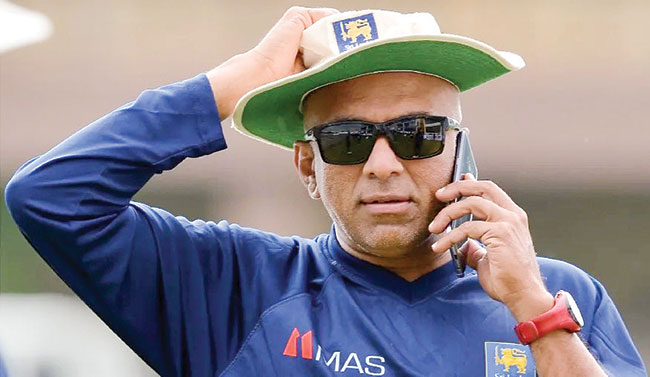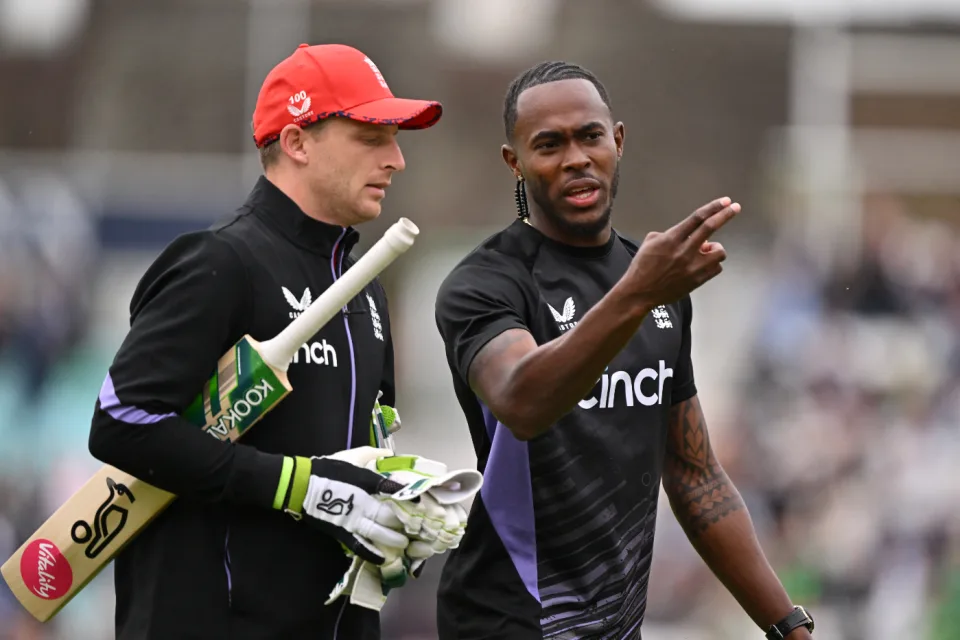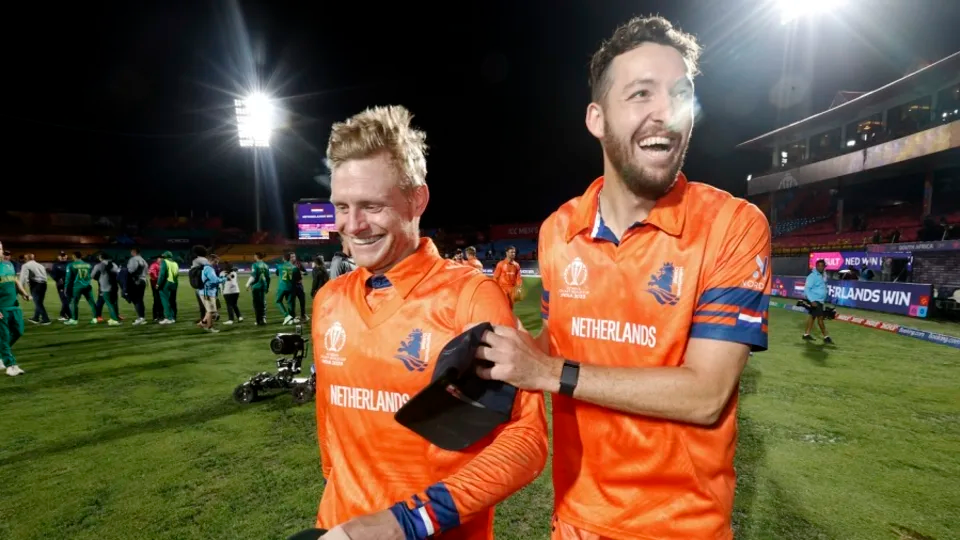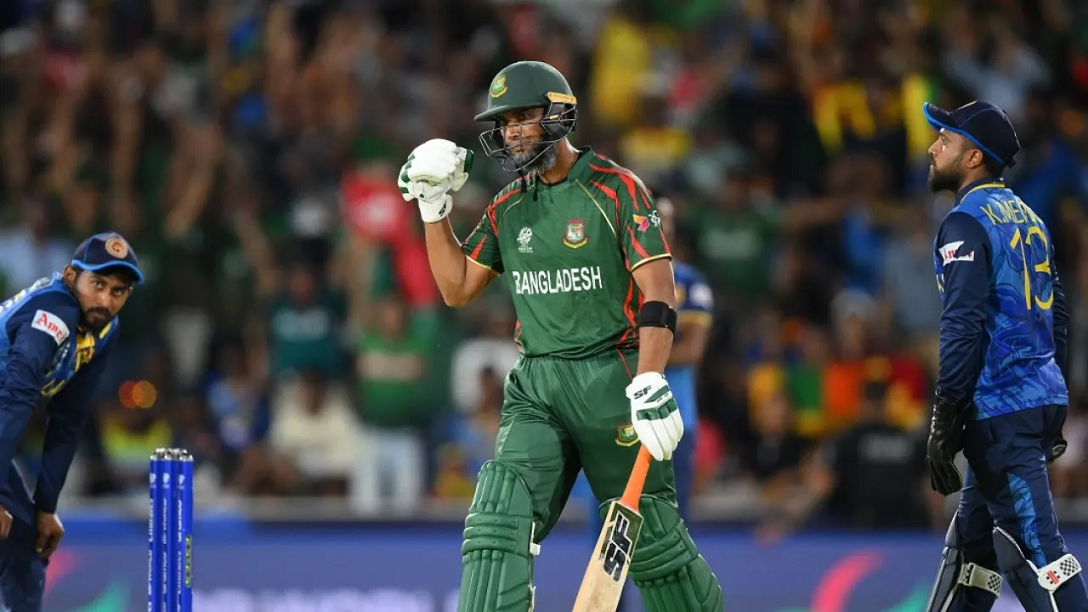Sports
It needs a mastermind to win in South Africa

by Rex Clementine
Indian cricket had reached new heights last year winning in Australia, sealing the series of all places at the Gabba, where the Aussies had been unbeaten for three decades. Given such an epic performance, you thought this Indian team will complete a series win in South Africa as well. But the Indians were cut to size as the Proteas chased down a tricky target showing guts in plenty with their skipper Dean Elgar putting up a super show at the Wanderers this week.
The series is leveled 1-1 and India could still go onto win it by emerging victorious in the final Test in Cape Town next week. The point is that you thought the series for this Indian side is a walk in the park given the parity between the two sides. If India do not win in Cape Town, Sri Lanka will be the only Asian nation to have won a Test series in South Africa. If you don’t get the impact of it, let us put it in simpler terms; only Sri Lanka, Australia and England have won Test series in South Africa where Test cricket has been played since 1889.
India’s got a formidable Test side that played in the finals of the World Test Championship. Sri Lanka’s is a weak unit where their best player is always injured. They have just got one bowler with 100 plus Test wickets and their batting is as brittle as a Chinese smart phone. So how did they win a series of all places in South Africa? Francois du Plessis and Dale Steyn were still part of the South African side when Sri Lanka won in Durban and Port Elizabeth in 2019. This should be a good case study for any student of the game.
This is where the brilliance of Chandika Hathurusinghe comes into the equation. There aren’t many smarter brains in cricket than his. Through meticulous planning he achieved the impossible. That leaked dressing room video moments after winning the series where players adore their coach just gives you a glimpse on the wonders that Hathurusingha could do and how much players respected him.
To start with there was some crazy scheduling. Sri Lanka toured New Zealand in December from where they went to Australia for a two Test series in February and then flew straight to Johannesburg from Canberra to play two more Tests in March. The players and coaching staff had not come home for four months and had been on the move constantly shifting from one hotel to the other and flying from one city to another. Usually when the scheduling is that hectic, the last leg turns out to be a nightmare and players are impatient to return home. Hathurusinghe found a way to keep them fresh and pull off the greatest heist in the annals of Sri Lankan Test cricket history.
It’s a bad idea to head into a Test series in South Africa without a warm-up game. That’s exactly what Sri Lanka had to do as the scheduling was so tight. Hathurusinghe had just five days to get the team ready. The biggest challenge that he faced was that a week before that the Aussie quicks had sent Kusal Perera and Dimuth Karunaratne crashing down with vicious bouncers. Both spent a night in the hospital. Hathurusinghe knew that with Steyn, Rabada and Olivier the short ball will be used to good effect. One of the things that he constantly worked on was the hand speed. Be prepared for the short ball and play positive cricket looking for methods to score. That worked. As we have seen time and again, when put under pressure, South Africa give in.
In Durban, KJP played a blinder with the last wicket stand with Vishwa Fernando taking the team over the line. In the second Test, Sri Lanka’s limited bowling resources did wonders. The seamers hardly had any threatening pace but Hathurusinghe’s method of staying discipline, sticking to good lengths did the trick. He proved yet again even though your attack did not possess anyone who bowled at 140kmph, there were means to take 20 wickets to win a Test match.
That series win was Hathurusinghe’s finest hour in his coaching career. Sadly, a few months later it was all over. It’s hard to find a better brain in cricket than that of Hathurusinghe. He could have, however, done far better things had he not compromised on his principles.
When Hathurusinghe came on board everyone told us that he will not tolerate indiscipline. That was a lie. He had favourites and tolerated them even when they had brought the game into disrepute.
Some of the resources he employed was just a waste of money. He roped in a psychologist from Brisbane who had a proven track record. But the point is, barring one or two players not many understood what the psychologist was trying to convey due to language barriers.
You also tend to get the feeling that Hathurusinghe only wanted to have in the coaching staff those whom he trusted. That was unprofessional. He did not place proper emphasis on fielding and as a result Sri Lanka’s fielding standards dropped so alarmingly that they were the worst fielding unit in the world. Again the issue could have been addressed with a professional fielding coach, but Hathurusinghe was against it and was happy to get the job done using amateurs. Steve Rixon was Fielding Coach when Sri Lanka won in South Africa and that recruitment was forced on the Head Coach.
When things were going off the track, Hathurusinghe was looking for scapegoats. His public condemnation of Angelo Mathews was in poor taste. Lasith Malinga was past his prime when Hathurusinghe decided to recall him. Those who were close to him literally were pleading not to do so as it may harm the team’s culture and unsettle a settled unit. He dismissed those suggestions saying that he could handle Lasith. That turned out to be wishful thinking.
Despite many flaws, Hathurusinghe is a super coach. He is meticulous with planning, unconventional, unafraid and understands the game and his players so well. Although he may not be back in the Sri Lankan fold again, here is a man who has got much to offer. Winning a series in South Africa was just unimaginable. India have just proven how tough it is to win a series in South Africa.
Sports
England face Australia in the battle of champions

The first truly heavyweight clash of this expanded T20 World Cup format comes freighted with both history and subplots. A rematch of the 2010 World T20 final at Kensington Oval, the match pits Jos Buttler’s defending champions – who are aiming to become the first team to retain the trophy – against the Australian winning machine, victors at the 2021 edition and current world title-holders in Test and ODI cricket. And that’s before you throw in the Ashes for afters.
Already there is added pressure on England, after the rain in Bridgetown led to a share of the points in their opener against Scotland (and that having conceded 90 runs from 10 overs without taking a wicket in a tepid bowling display). Lose to their oldest rivals and it will leave their Super 8 prospects open to being waylaid by the perils of net run-rate calculations, or worse.
The Scotland match was the third abandonment in five suffered by England, after a rain-affected home series against Pakistan, which has clearly hampered their readiness for this campaign after almost six months without playing T20 together. It does not take much for a side to click in this format – and England looked in decent shape when they did get on the field against Pakistan – but Buttler will be anxious for things to go their way on Saturday, if only to avoid further questions referencing the team’s disastrous ODI World Cup defence last year.
Australia, under the laidback leadership of Mitchell Marsh would love nothing more than to add to the English sense of jeopardy – having helped bundle them out of the tournament in India on the way to taking the crown. Their head to head record is less impressive in T20 however, with England having won six of the last seven completed encounters, as well as that 2010 final.
Despite a wobble with the bat, Australia avoided mishap against Oman earlier in the week, the experience of David Warner and Marcus Stoinis shining through in difficult batting conditions. Surfaces in the Caribbean – not to mention those games staged in the USA – have already had teams scratching their heads; rather than the “slug-fest” England had prepared for, following a high-scoring tour of the Caribbean in December, it looks as if boxing smart may be the way to go.
Speaking of Warner, this could be the last time he faces up against England in national colours – and another match-winning contribution would likely reduce the chances of them meeting again in the knockouts. On the other side of the card is Jofra Archer, fresh from an emotional maiden outing at Kensington Oval and ready to take on Australia for the first time in any format since 2020. Can Mark Wood fire up England’s campaign, as he did during last summer’s Ashes? Will Pat Cummins be back to harass the old enemy once again? Seconds out, it’s almost time to rumble.
Cummins is set to return after being rested for the Oman game, which saw Mitchell Starc leave the field with cramp. Starc is understood to be fine and could keep his place – which would likely see Nathan Ellis miss out. Marsh is still not fit to bowl, with Australia likely to continue with the allrounder combination of Stoinis and Maxwell to give them cover.
Australia (probable XI): David Warner, Travis Head, Mitchell Marsh (capt), Glenn Maxwell, Marcus Stoinis, Josh Inglis (wk), Tim David, Pat Cummins, Nathan Ellis/Mitchell Starc, Adam Zampa, Josh Hazlewood
The one change England may consider is Reece Topley coming in for Wood, with the expectation that there will be some rotation among the seamers through the course of the tournament.
England (probable XI): Phil Salt, Jos Buttler (capt & wk), Will Jacks, Jonny Bairstow, Harry Brook, Liam Livingstone, Moeen Ali, Chris Jordan, Jofra Archer, Adil Rashid, Reece Topley/Mark Wood
[Cricinfo]
Sports
South Africa up against their bogey team in batter-unfriendly New York

Once is coincidence, twice is a clue, and three times is proof.
To paraphrase Agatha Christie, that is the narrative around South Africa’s meeting with Netherlands at this T20 World Cup.
The Dutch beat South Africa at the 2022 tournament and ended their semi-final hopes in a match where South Africa appeared to be sleep walking, and then beat them again at the 2023 ODI World Cup, where they exposed South Africa’s vulnerability in the chase. If they to do the treble, not only will Netherlands take the lead in Group D, but they will offer conclusive evidence of the threat they pose to Full Members, especially South Africa.
Of course, it will take some doing after South Africa’s opening performance against Sri Lanka, where they reduced their opposition to their lowest T20I total and chased it down in fairly straightforward fashion thanks to the most stable middle-order of their white-ball era. In Aiden Markram, Tristan Stubbs, Heinrich Klaasen and David Miller, South Africa have bankers and big-hitters and, for this match, they also have the advantage of experience. They’ve already played at Eisenhower Park, and have first-hand knowledge that run-scoring doesn’t come easily;Klassen said they are prepared to use their “cricket brains” and play “smarter cricket”.
But the conditions could be good news for Netherlands, who are not naturally a line-up of big hitters and build their innings on a foundation of turning ones into twos. In other words, they tend to take a slightly more conservative approach to batting, which may work well here, but they’ll be wary of the uneven bounce of the surface and will have to come up with plans to counterattack especially against South Africa’s seamers. Their own bowlers were exemplary in Dallas and will look to build on that performance against a line-up that will likely be more proactive than Nepal’s, but who they have managed to keep quiet not once, but twice in the past. Third time’s the charm, they say.
Anrich Nortje’s stunning return to form against Sri Lanka means South Africa may not have to tinker with the bowling combination, and Gerald Coetzee and Tabraiz Shamsi may have to wait their turns to get a game. The batting line-up should be unchanged, with no space for Ryan Rickelton yet.
South Africa: Quinton de Kock (wk), Reeza Hendricks, Aiden Markam, Tristan Stubbs, Heinrich Klaasen (wk), David Miller, Marco Jansen, Keshav Maharaj, Kagiso Rabada, Ottneil Baartman, Anrich Nortje
Conditions in New York may tempt Netherlands to include an extra seamer and they have Kyle Klein in their squad. But it could come at the expense of a shortened batting line-up and they may not want to risk that.
Netherlands: Michael Levitt, Max O’Dowd, Vikramjit Singh, Sybrand Engelbrecht, Scott Edwards (capt, wk), Bas de Leede, Teja Nidamanuru, Logan van Beek, Tim Pringle, Paul van Meekeren, Vivian Kingma
[Cricinfo]
Latest News
Mustafizur, Rishad, Hridoy dazzle in Bangladesh’s tight two-wicket win over Sri Lanka

Nuwan Thushara’s last over brought Sri Lanka screaming back into the match,as he first bowled Rishad Hossain, and then nailed Taskin Ahmed in front of the stumps with a pinpoint swinging yorker. This left Bangladesh eight wickets down, with 12 runs still to get.
However, the experienced Mahmudullah was at the crease for Bangladesh, and despite some further nervy moments, pushed Bangladesh across the line off the last ball of the 19th over.
But this was a match chiefly decided by Bangladesh’s own outstanding bowling. Mustafizur Rahman was the best among them, using shorter lengths and his cutters efficiently, to claim figures of 3 for 17. Rishad Hossain’s three-for through the middle overs also kept Sri Lanka quiet.
Mustafizur was instrumental in Sri Lanka’s downward spiral through the middle overs, which culminated in a crash-and-burn end. Ultimately, their inability to find boundaries, or even rotate strike against good Bangladesh bowling resulted in their downfall. A score of 125 for 9 always seemed poor on a decent pitch, even if their bowlers made a match of it in the end.
Brief scores:
Bangladesh 125 for 8 in 19 overs (Towhid Hridoy 40, Litton Das 36; Dhanajaya de Silva 1-11, Nuwan Thushara 4-18, Wanidu Hasaranga 2-32, Matheesha Pathirana 1-27) beat Sri Lanka124 for 9 in 20 overs (Pathum Nissanka 47, Dhananjaya de Silva 21; Tanzim Hasan Sakib 1-24, Taskin Ahmed 2-25, Mustafizur Rahman 3-17, Rishad Hossain 3-22) by two wickets
[Cricinfo]





















